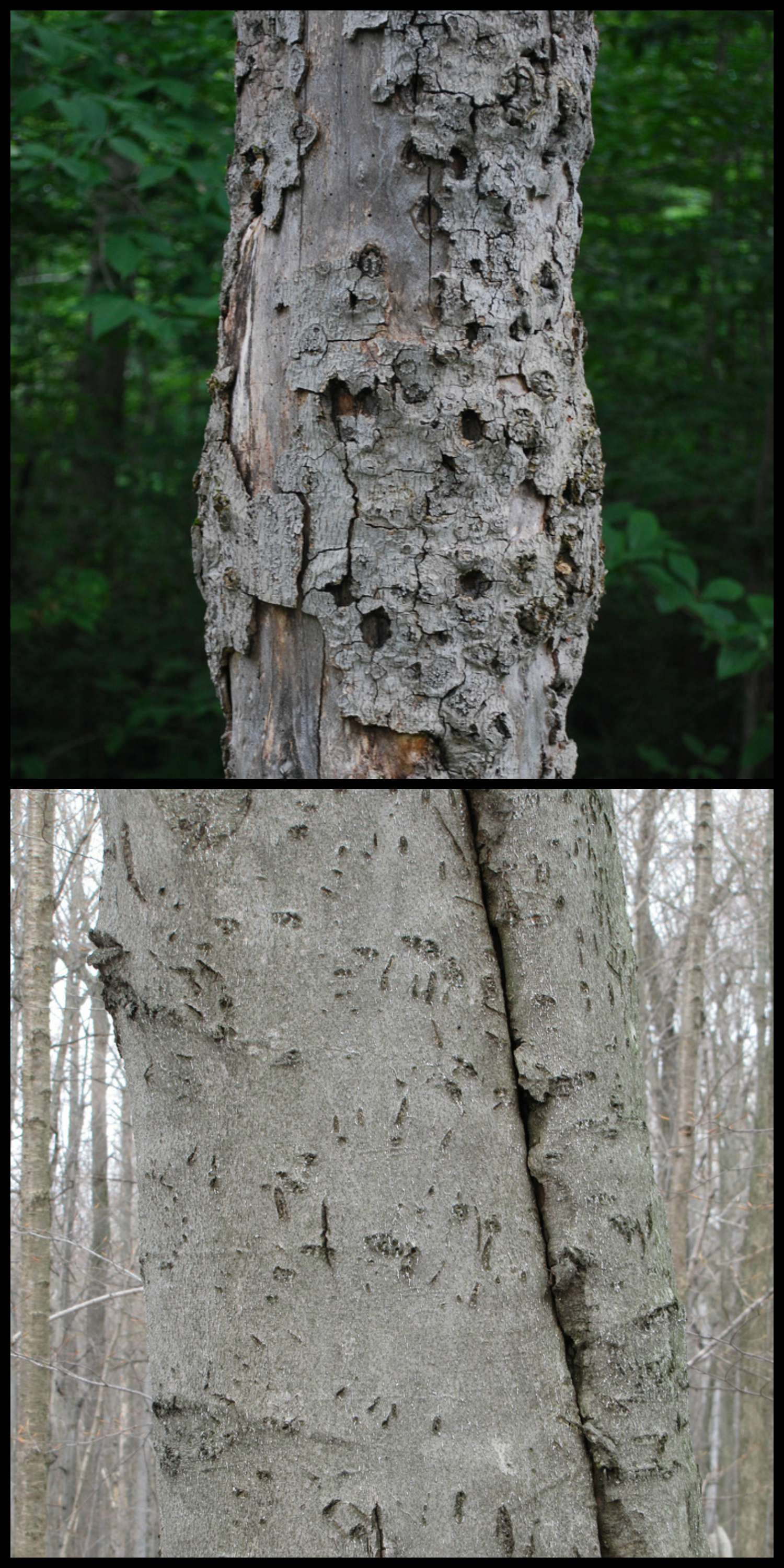American Beech : American Beech Bark and Black Bears in Vermont

American beech bark ravaged by BBD and bark marked by bears (top: Eli Sagor, August 5, 2010; bottom: Sara Hollerich, May 11, 2011)
The American Beech has a special ecological relationship with the black bear right here in Vermont. In cold northern forests dominated by spruce-hardwoods, the American Beech is the sole producer of hard mast, or nuts, and is therefore a vital autumn food source for black bears as they prepare for winter hibernation. Black bears obtain beechnuts by climbing up to the tree’s canopy to break or chew off branches or just to shake the nuts off the tree. They prefer to feed on the ground, but in poor circumstances black bears will stay in the canopy to eat. If they do, branches are often broken and accumulate in a pile beneath or beside the bear. This pile, known as a bear nest, is a sign of bear foraging along with the classic symbol of claw marks on tree trunks.
Black bears scale larger, more mature trees while searching for food. Unfortunately, beech nut production on large trees has significantly been reduced since beech bark disease (BBD) arrived in Vermont in 1960. BBD threatens trees initially through an insect that feeds on the inner bark cells of the American Beech, making the bark susceptible to a Nectria fungus. The susceptibility of this fungus varies from tree to tree, but larger trees are more prone to disease than smaller ones and it is incidentally the older trees that produce the beechnuts black bears need.
On top of BBD, the American Beech has been in long decline in Vermont ever since extensive land clearance began in the 18th century during European settlement. Although beechnuts do not exclusively compose a black bear’s diet, the spread of BBD certainly disadvantages these creatures. With fewer beechnuts, black bears are forced to look for alternate food resources. They have found a food haven in human areas from sources like garbage bins and bird feeders, which has created a great increase in human-bear interactions. Through a chain of events, BBD leads to more black bear deaths as a result of human intolerance to this animal’s struggle for survival.
